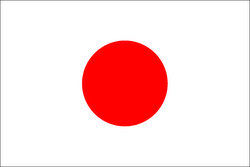 Acupuncture helps postoperative atrial fibrillation, according to the authors of an American feasibility study. In a randomised clinical trial, 138 patients undergoing cardiac surgical procedures such as coronary bypass, valve operations etc, were randomly assigned to receive either standard care or standard care with acupuncture. Up to three 30 minute acupuncture treatments were offered, at a rate of one per day. Patients were assessed for anxiety, pain and tension before and after acupuncture, and for heart rate and blood pressure. A “Was It Worth It” questionnaire was also completed by patients undergoing acupuncture.
Acupuncture helps postoperative atrial fibrillation, according to the authors of an American feasibility study. In a randomised clinical trial, 138 patients undergoing cardiac surgical procedures such as coronary bypass, valve operations etc, were randomly assigned to receive either standard care or standard care with acupuncture. Up to three 30 minute acupuncture treatments were offered, at a rate of one per day. Patients were assessed for anxiety, pain and tension before and after acupuncture, and for heart rate and blood pressure. A “Was It Worth It” questionnaire was also completed by patients undergoing acupuncture.
Although the POAF recurrence rate was not statistically different between the two groups, the POAF burden was significantly shorter in acupuncture patients (5.2 versus 26.4 hours). Acupuncture was also associated with decreased anxiety (4.5 to 1.5), pain (3.5 to 2.0), tension (4.0 to 2.0), diastolic blood pressure (74.5 to 69.5mm/hg) and heart rate (74.5 to 72.5bpm). Furthermore, 95% of acupuncture patients stated it was worth participating. The researchers conclude that acupuncture is feasible and safe, and significantly reduces POAF burden among other things. It also meets with patient satisfaction.
(Acupuncture Treatment For Atrial Fibrillation in the Post-Operative Cardio-Thoracic Setting- A Feasibility Pilot Study. Journal of the American College of Cardiology, May 2021.)
 Acupressure can reduce thirst and improve quality of life in patients receiving dialysis treatment, according to a study undertaken in Turkey. Sixty patients were randomly assigned to either an acupressure or control group. In the acupressure group, treatment was applied to five acupuncture points during the first half of each dialysis session, for three days per week over a six week period. Acupressure was found to increase saliva secretion, decrease thirst severity, and improve quality of life.
Acupressure can reduce thirst and improve quality of life in patients receiving dialysis treatment, according to a study undertaken in Turkey. Sixty patients were randomly assigned to either an acupressure or control group. In the acupressure group, treatment was applied to five acupuncture points during the first half of each dialysis session, for three days per week over a six week period. Acupressure was found to increase saliva secretion, decrease thirst severity, and improve quality of life.
 Acupuncture helps postoperative atrial fibrillation, according to the authors of an American feasibility study. In a randomised clinical trial, 138 patients undergoing cardiac surgical procedures such as coronary bypass, valve operations etc, were randomly assigned to receive either standard care or standard care with acupuncture. Up to three 30 minute acupuncture treatments were offered, at a rate of one per day. Patients were assessed for anxiety, pain and tension before and after acupuncture, and for heart rate and blood pressure. A “Was It Worth It” questionnaire was also completed by patients undergoing acupuncture.
Acupuncture helps postoperative atrial fibrillation, according to the authors of an American feasibility study. In a randomised clinical trial, 138 patients undergoing cardiac surgical procedures such as coronary bypass, valve operations etc, were randomly assigned to receive either standard care or standard care with acupuncture. Up to three 30 minute acupuncture treatments were offered, at a rate of one per day. Patients were assessed for anxiety, pain and tension before and after acupuncture, and for heart rate and blood pressure. A “Was It Worth It” questionnaire was also completed by patients undergoing acupuncture. Research in China suggests acupuncture improves exercise capacity in patients with COPD (chronic obstructive pulmonary disease). A total of 102 patients with stable COPD were randomly allocated to receive either routine treatment plus acupuncture, or routine treatment alone. Acupuncture was given three times a week for six weeks.
Research in China suggests acupuncture improves exercise capacity in patients with COPD (chronic obstructive pulmonary disease). A total of 102 patients with stable COPD were randomly allocated to receive either routine treatment plus acupuncture, or routine treatment alone. Acupuncture was given three times a week for six weeks.  ‘Does acupuncture help with COPD?’ was the question asked by authors of a collaborative systematic review by universities in Barcelona and Beijing. Their analysis of data from 28 randomised trials showed that acupuncture added into patients’ usual treatment, improved difficulty breathing, quality of life, lung function and capacity for exercise, all when compared to sham treatment. The authors conclude that acupuncture might be beneficial for COPD, although the quality of trials was low and they would like to see further, well-designed studies undertaken.
‘Does acupuncture help with COPD?’ was the question asked by authors of a collaborative systematic review by universities in Barcelona and Beijing. Their analysis of data from 28 randomised trials showed that acupuncture added into patients’ usual treatment, improved difficulty breathing, quality of life, lung function and capacity for exercise, all when compared to sham treatment. The authors conclude that acupuncture might be beneficial for COPD, although the quality of trials was low and they would like to see further, well-designed studies undertaken. Researchers in the Department of Respiratory Medicine at a Japanese hospital, studying acupuncture for COPD (chronic obstructive pulmonary disease), have shown treatment is associated with improved exercise performance parameters. In the trial, 16 patients with COPD received acupuncture once a week for 12 weeks, in addition to any usual medication. The effects of treatment were evaluated at baseline and at 12, 16, and 24 weeks.
Researchers in the Department of Respiratory Medicine at a Japanese hospital, studying acupuncture for COPD (chronic obstructive pulmonary disease), have shown treatment is associated with improved exercise performance parameters. In the trial, 16 patients with COPD received acupuncture once a week for 12 weeks, in addition to any usual medication. The effects of treatment were evaluated at baseline and at 12, 16, and 24 weeks.